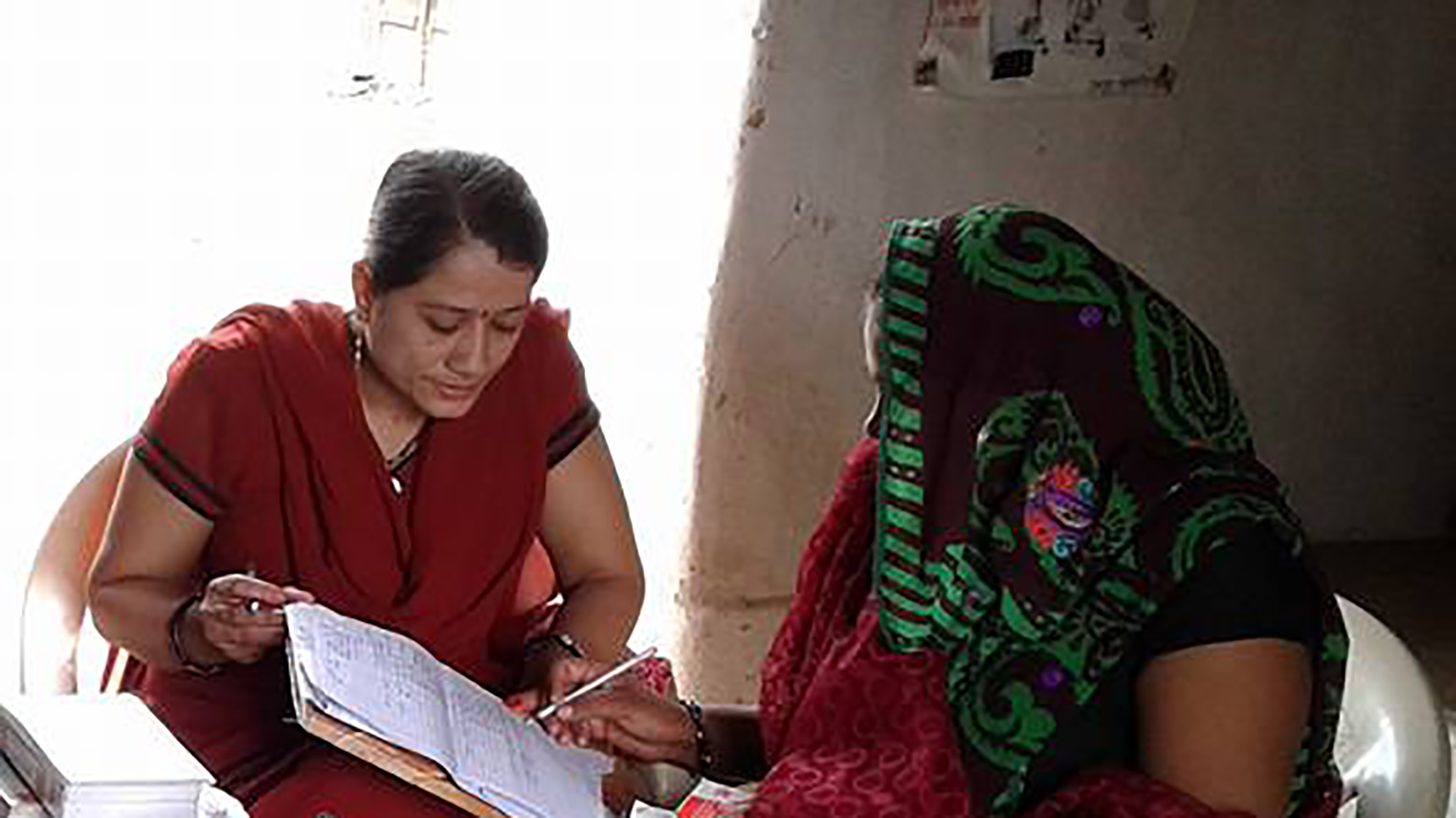All News
World Vision-led REACTS-IN receives $44 million to transform nutrition, empower women and promote gender equality
May 26, 2023
Against all odds, an Indian mother becomes a community health champion: the story of Shilpa Sharma
Shilpa Sharma was inspired to become a health activist in her community, dedicating her life to serving other women and their young children – no matter the difficulties ahead.
Posted on August 5, 2016


Sometimes, it only takes one daring individual to start breaking down the barriers holding back entire communities. Shilpa Sharma is one of these unsung champions. A woman from a modest family from Madhya Pradesh, India, married young, she was inspired by her own struggles as new mother and became a health activist in her community, dedicating her life to serving other women and their young children – no matter the difficulties ahead.
Transforming personal loss and struggles into service to others
At the age of 15, Shilpa, now 33, lost her mother. Only two years later, despite being under the legal age for wedlock, she was married off. As a result, Shilpa, who had just finished school, went on to live with her husband’s family. While she dealt with the struggles of early marriage, adapting to a new life living with her in-laws and giving birth to two children in quick succession, she quickly became aware of the hardships women, mothers and young children living in rural areas faced because of the dire lack of health services.
When she found out that a position as Accredited Social Health Activist (ASHA) was available in her village, she applied.
“I was eager to help them as I saw a lot of suffering around me,” she reminisced.
A recognized leader and mentor
Eventually, the government appointed her as ASHA supervisor. Then, recognizing her leadership, her dedication and her commitment to providing quality care, the Micronutrient Initiative (MI) selected her to become an ASHA master trainer. Despite the challenges she knew she would face, she embraced her new role with pride and courage.
Shilpa received training in all aspects of vitamin A supplementation for children below five, iron and folic acid (IFA) and calcium supplementation for pregnant women, zinc and oral rehydration salts for children with diarrhea, and weekly IFA supplementation for adolescent girls in and out of school.
Today, Shilpa oversees the work of 10 ASHAs in Madhya Pradesh’s Ashoknagar district. Some of her fundamental teachings include the lifesaving importance of maintaining close and regular interactions with families of pregnant women and young children so that timely counselling and referrals can be made. She also teaches them how to properly update their records to ensure that stocks are replenished and services are adequate. She also routinely schedules monitoring visits to remote areas of the district to assist them and provide hands-on training.
Shilpa takes it to heart to coach the communities she visits, and at times she will be seen leaving key health and nutrition messages on the walls of Anganwadi centers (state-run child care and mother care centers) to inspire and educate visitors such as the ones on timely vaccination of children or bi-annual vitamin A doses.
Overcoming culture and tradition
While the work of an ASHA is rewarding, the road to success is paved with the kind of hardships Shilpa is all too familiar with.
Like many health workers, Shilpa often meets communities reluctant to receive services from health workers who may be from a different caste or who are women.
Many ASHAs are still not allowed to mix freely with the community as their families expect them to follow the custom of “purdah” in which a woman hides her face from men outside of her family.
“This custom takes away the ASHAs’ confidence who are often unable to provide counselling services effectively,” she said.
In an effort to reduce the adverse effects of these social norms and practices on the provision of health services, Shilpa regularly discusses with elders and community leaders to find common grounds and help change perceptions about women and people of various castes in these roles. Many husbands are also still unwilling to let their wives become ASHAs or take on new responsibilities outside the home altogether.
“Unless a woman is empowered, she will neither be able to work well as an ASHA nor be an effective homemaker and caregiver.”
This mentality ― combined with the fact that, typically, only women play this role ― results in a significant lack of ASHAs in several rural communities in need. Consequently, the ASHAs working in these communities often carry the extra burden of an overwhelming demand.
The long road to transformation
Shilpa believes that through constant effort and dedication, beneficiary communities will eventually see the value of allowing ASHAs more closely into their lives – no matter who they are. All mothers want the best for their children, fathers as well, and their fears and concerns will eventually dissipate as they witness the benefits of receiving their care and their support. Protecting the precious health and lives of their children is the best argument against old ways.
For now, driven by her sense of duty and profound desire to make a difference, she will stop at nothing to help those who need it the most.
MI is proudly supporting Shilpa and other ASHAs in vulnerable communities all across India as part of the Right Start Initiative. Right Start in India will reach 3 million women, 8 million adolescent girls and 4 million children below 5 in India with improved nutrition by 2020.